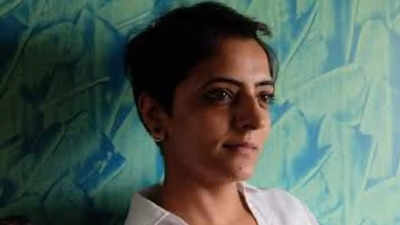Filmmaker Sarvnik Kaur says she accidentally stumbled into the story of her award-winning
climate change
documentary “Against The Tide”, which began as a quest to understand displacement and
land rights
only to turn into an exploration of friendship between two
Mumbai fishermen
. The film, which won the Special Jury Award at
Sundance Film Festival
, Sustainable Future Award at the Sydney Film Festival and Golden Gateway Award at the Mumbai MAMI film festival, is currently streaming on MUBI India.
At the centre of Sarvnik’s documentary are Rakesh and Ganesh, two Koli fishermen and friends with differing ambitions in life. Rakesh has kept faith in the traditional fishing methods but Ganesh has embraced technology and that sometimes leads to friction as they both are struggling with dwindling resources.
“People imagine that climate change is someone else’s problem. We don’t actually realise that our value system where all of us are basically running for more and where our lives are turned into a quest is very much a part of what climate change is. We are all feeling threatened because we know resources are shrinking,” she told PTI in an interview.
Sarvnik, who explores the story of farmers and their relationship with the land in her next project, said she wants viewers to participate in the lives of her two protagonists as they grapple with difficult decisions.
“Rakesh and Ganesh are like two sides of the same coin. It was almost like Ganesh wanted Rakesh to agree with him in rationality and Rakesh needed Ganesh to agree with him on emotions. They were talking to each other, the heart and the mind, where one was saying ambition and the other one was saying satisfaction,” she said, recalling her initial meeting with the two friends.
“Between them was climate change in a sea that is not producing fish and both of them were struggling. And that’s how I accidently found my film, over the course of a year of drinking lots of whiskey with these two men.”
Sarvnik, whose previous works include her Kashmir-set documentary “A Ballad of Maladies” with Tushar Madhav, said she grew up in Delhi on stories of “familial displacement and memories of trauma” as her grandparents left Pakistan during the Partition and struggled to build a house in Delhi only for it to be destroyed in the 1984 riots.
“I have been always looking for home or the idea of it subconsciously and that has also been my artistic journey,” she said, adding that she initially got interested in the
Koli community
after hearing about their protest against the Mumbai coastal road project.
Mumbai, particularly Versova, had begun to feel like home as she developed friendships around and she thought about making a film about land rights and that it belongs to the people.
“As I started working on it, I kind of realised that premise was not panning out because Bombay is an artificially made city, reclaimed from the sea, settled by migrants and people who are outsiders essentially for over 200 years…”
While attending the protest of a women’s collective who put up a movement against BMC’s attempt to make their 170 year-old fish market into a mall, she met Bhanu, Rakesh’s mother.
“She called me over for lunch at home. I met Rakesh and he had this quiet confidence about him, which was very endearing. He said that a Koli can never go hungry. All I have to do is step into the sea and I’ll be able to feed my family.
“And then at another protest site, I met Ganesh who spoke about how Kolis are the last bastions of Bombay and without them, the city would drown because it would cut off all its mangroves to make residential colonies and high rise buildings. I kind of connected with him because he was also appealing to the community to modernise,” she recalled.
And then she saw the two men sitting and drinking. She realised that they were friends and the idea of “Against The Tide” started to take shape in her mind as a “conversation between these two men”.
“You try to figure out the film while you are making it. I think the process of finding your story in a documentary is pretty much understanding your own psyche, your life’s history, where you’re coming from.”
Sarvnik considers it an exciting time for documentary filmmakers as “the country is in transition for the last 30 odd years” with shifting value systems.
“I think the first choices of morality versus rationality were being made by our parents and we, as a generation, grew up with ambition where it was given that you had to financially do better than your parents. We felt that kind of pressure for the first time, which is also lending itself to the form that our films are taking. We are trying to get as close to life and not really tell the stories with the colonial outsiders gaze,” she said.


